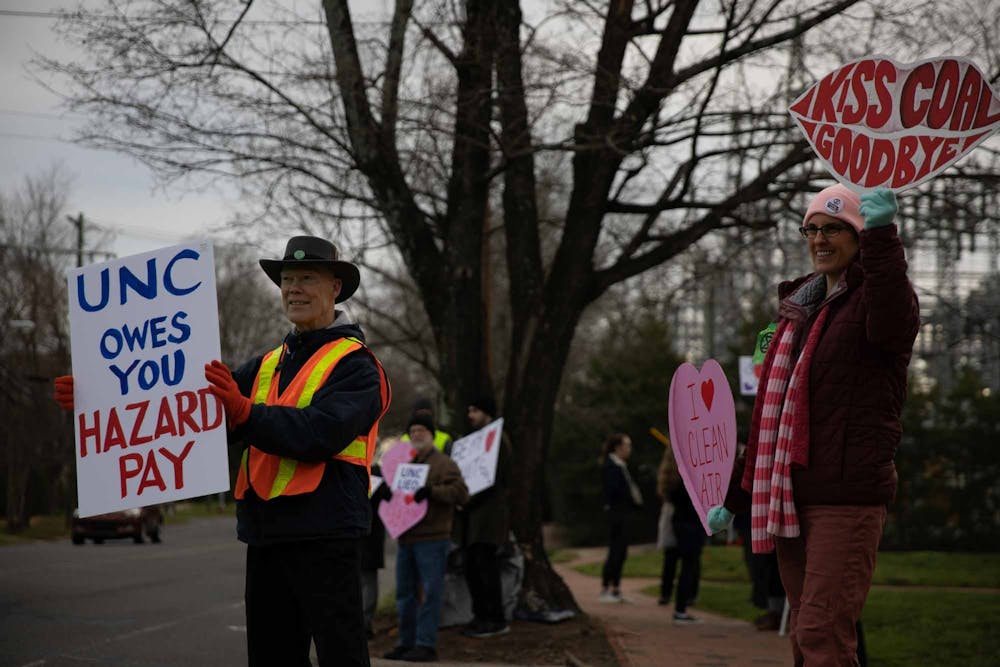On the first anniversary of the coal plant protests that he organizes, climate activist Gary Richards gathered with a small group of protesters on West Cameron Avenue in front of UNC’s Cogeneration Facility.
Richards said the Friday morning demonstration, which was the first one since March 6 when protesters stopped because of coronavirus concerns, is back because of this anniversary.
He said to protect each other from the virus, all protesters wore masks and stayed at least 6 feet apart.
“It has been proven that plants like the one on UNC’s campus put carbon dioxide, nitrous oxide and other chemicals into the air that can cause people to have asthma or heart conditions that make them more prone to getting the virus,” Richards said.
Kim Piracci, chairperson of the Climate Reality Project's Orange County chapter, usually joins Richards at the protests, but was unable to attend this past Friday.
Piracci said in light of the COVID-19 pandemic, closing the plant is probably more important now than ever before.
“That plant causes pollution, and now we know the virus lives on pollution,” she said. “That coal plant really shouldn’t be in the middle of a densely populated area.”
Piracci said that if the pandemic causes changes in society, it only makes sense to build a green economy and a society that is equitable and more sustainable for people.
Richards said the plant's current location represents an inequity from when it was built and an inadequate climate response from UNC as a leading scientific research university.



